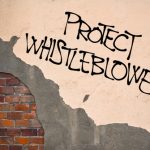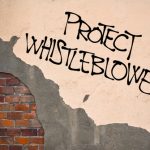DPP Presses Charges Against Government Whistleblowers

Australia’s reputation as a ‘fair’ country has taken another battering, with revelations that the Commonwealth Director of Public Prosecutions (CDPP) has filed criminal charges against two Australians who allegedly released information that the Howard government had been illegally spying on East Timor.
It has been reported that former ACT Attorney-General, barrister Bernard Collaery, and his client, a former Australian Secret Intelligence Service (ASIS) operative known as “Witness K” have been charged with revealing details of a covert government operation.
Using parliamentary privilege, independent Tasmanian MP Andrew Wilkie who has a long history as a whistleblower himself, reported that Mr Collaery – who served as the ACT Attorney-General and deputy chief minister from 1989 to 1991 – and his client, a former ASIS technical operations officer, are both facing charges after Collaery allegedly recommended that his client give confidential testimony at the Hague.
The story so far
Witness K was allegedly involved in Australia’s bugging of East Timor’s cabinet rooms in 2004 during bilateral negotiations over the Timor Sea Treaty.
At the time, the Howard Government had ASIS illegally install bugging devices in the East Timor ministerial offices in order to eavesdrop on their deliberations. The illegally obtained information put Australia in a superior negotiating position regarding the treaty.
As MP Andrew Wilkie describes it: “In effect, [former foreign minister Alexander] Downer and, by implication, Australia, one of the richest countries in the world, forced East Timor, the poorest country in Asia, to sign a treaty which stopped them from obtaining their fair share of oil and gas revenues, and that is simply unconscionable.”
Mr Collaery was the approved lawyer for ASIS at the time. When Witness K spoke to him of the incident, Mr Collaery undertook his own investigations. After more than two years of research, he determined that the operation had been in violation of the Intelligence Services Act.
He then took steps for his client to give confidential evidence at the International Tribunal at the Hague.
If the arrangement had gone ahead, Witness K would have been making a legal disclosure in confidential proceedings.
But Mr Wilkie reports that it did not go ahead. Rather, the Australian government put a stop to the pending action once it found out what was happening. In 2013, ASIO raided Witness K’s home as well as the home and office of Mr Collaery, seizing documents and data. It also cancelled Witness K’s passport.
Now, criminal charges have now been filed against both men.
MP Wilkie remarks, “… this is exactly what happens in a pre-police state, where instead of a royal commission, they lock people up who more likely deserve the Order of Australia.”
Prosecuting whistleblowers
Late last year, Prime Minister Malcolm Turnbull introduced the National Security Legislation Amendment (Espionage and Foreign Interference) Bill 2017. The legislation is ostensibly aimed at countering espionage, treason and foreign interference, but many have expressed concerns it will further criminalise those who expose government crimes and corruption.
The proposed laws are extremely broad, and aim to impose harsh penalties on Commonwealth officers who leak classified information, or even take steps towards reporting such information to the public.
Commonwealth officers include current or former public servants, members of the defence force or the Australian federal police, employee working for a company that provides services to the federal government, and contractors.
The legislation imposes maximum penalties of up to 15 years imprisonment for communicating government information.
Current laws
Many believe the proposed laws are unnecessary overkill, pointing out that there are a number of laws which already criminalise whistleblowers.
Section 70 of the Crimes Act 1914 (Cth), for example, prescribes a maximum penalty of 2 years’ imprisonment for a former or current Commonwealth officer to publish or communicate government information without authorisation to do so.
And section 79(3) makes it a criminal offence for any individual to communicate an official secret, or to permit another to have access to it. The offence also carries a penalty of up to 2 years imprisonment. And any individual who knowingly receives a secret under these circumstances can also be sent to gaol for up to 2 years.
Last year, Senator Nick Xenophon called for the current laws to be abolished on the basis that they prevent the public from being informed about maladministration and malfeasance in government.
He believes that those who reveal information in the public interest need to be protected, not punished.
However, most of our current politicians clearly disagree as evidence by the passing of Turnbull’s new Act.








